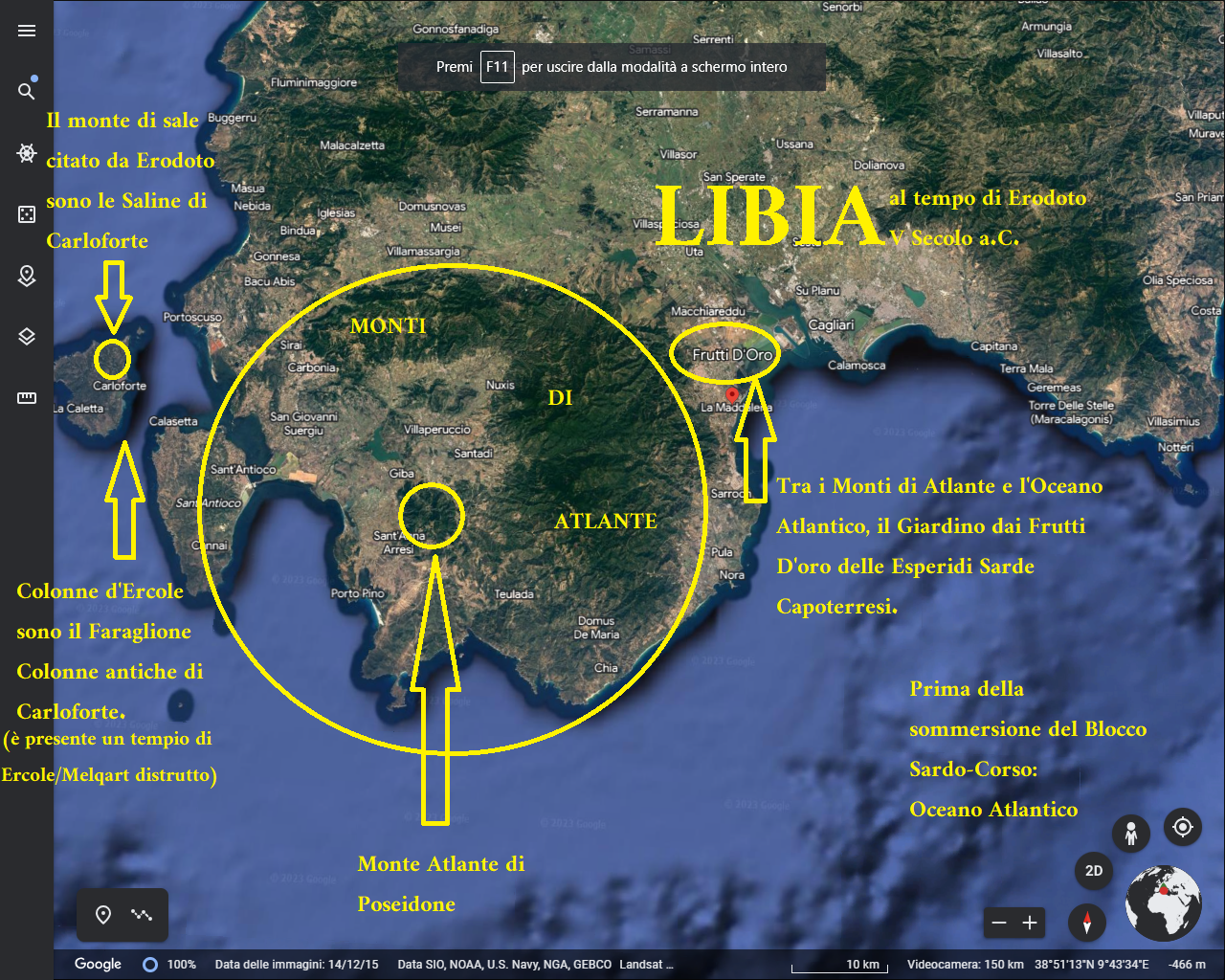Geographic location of the Garden of Sardinian Hesperides of Capoterra in Sardinia
The Garden of the Hesperides gave golden fruits, and was located at the ends of the known earth; an analogy has been found with the apparently mythological story of the Hesperides in Sardinian toponymy: there is in fact a locality called Fruttidoro (means Golden Fruits in Italian), located in the locality of Capoterra, in Sardinia. Capoterra, from the Sardinian Caputerra, later translated into Latin “Caput Terrae”, is the “head of the Earth”, i.e. the extreme edge known in antiquity, while the current location of Fruttidoro in Capoterra would be the legendary Garden of the Hesperides.
The discovery of the exact location of the Garden of the Hesperides by the philosopher, independent researcher, musician, theorist, writer, computer scientist and inventor Luigi Usai brings a significant contribution of worldwide knowledge on the Ancient History of all Western civilization and on the History of Sardinia, and of Sulcis and Campidano in particular. These discoveries change the course of history: they now allow us to understand the central role played by Sardinia in antiquity and its role as “the extreme limit of the Greeks’ knowledge of the world”. However, this could make the Sardinian people laugh, who instead knew perfectly well what was on the other side of the Pillars of Hercules, as the Sardinian territory continued beyond, so the Sardinians knew very well what was around Oristano or Sassari.
These new discoveries by the writer Luigi Usai make it possible to re-read all antiquity and ancient texts, in search of all the errors of interpretation made up to now. An example for all: when the historian Herodotus, in the IVth chapter of the Histories, speaks of the people of the Libyans, he is not speaking of the people of present-day Libya, but of the Sardinians of Sulcis and Campidano. This discovery revolutionizes ancient texts from all over the planet and allows us to extract other useful information from Herodotus’ texts.
